
Logitech announced a new mouse last week. A company rep reached out to inform Ars of Logitech’s “newest wireless mouse.” The gadget’s product page reads the same as of this writing.
I’ve had good experience with Logitech mice, especially wireless ones, one of which I'm using now. So I was keen to learn what Logitech might have done to improve on its previous wireless mouse designs. A quieter click? A new shape to better accommodate my overworked right hand? Multiple onboard profiles in a business-ready design?
I was disappointed to learn that the most distinct feature of the Logitech Signature AI Edition M750 is a button located south of the scroll wheel. This button is preprogrammed to launch the ChatGPT prompt builder, which Logitech recently added to its peripherals configuration app Options+.
That's pretty much it.
Beyond that, the M750 looks just like the Logitech Signature M650, which came out in January 2022. Also, the new mouse’s forward button (on the left side of the mouse) is preprogrammed to launch Windows or macOS dictation, and the back button opens ChatGPT within Options+. As of this writing, the new mouse’s MSRP is $10 higher ($50) than the M650’s.
- The new M750 (pictured) is 4.26×2.4×1.52 inches and 3.57 ounces.Logitech
- The M650 (pictured) comes in 3 sizes. The medium size is 4.26×2.4×1.52 inches and 3.58 ounces.Logitech
I asked Logitech about the M750 appearing to be the M650 but with an extra button, and a spokesperson responded by saying:
AdvertisementM750 is indeed not the same mouse as M650. It has an extra button that has been preprogrammed to trigger the Logi AI Prompt Builder once the user installs Logi Options+ app. Without Options+, the button does DPI toggle between 1,000 and 1,600 DPI.
However, a reprogrammable button south of a mouse's scroll wheel that can be set to launch an app or toggle DPI out of the box is pretty common, including among Logitech mice. Logitech's rep further claimed to me that the two mice use different electronic components, which Logitech refers to as the mouse’s platform. Logitech can reuse platforms for different models, the spokesperson said.
Logitech's rep declined to comment on why the M650 didn't have a button south of its scroll wheel. Price is a potential reason, but Logitech also sells cheaper mice with this feature.
Still, the minimal differences between the two suggest that the M750 isn't worth a whole product release. I suspect that if it weren't for Logitech's trendy new software feature, the M750 wouldn't have been promoted as a new product.
The M750 also raises the question of how many computer input devices need to be equipped with some sort of buzzy, generative AI-related feature.
Logitech’s ChatGPT prompt builder
Logitech's much bigger release last week wasn't a peripheral but an addition to its Options+ app. You don't need the "new" M750 mouse to use Logitech's AI Prompt Builder; I was able to program my MX Master 3S to launch it. Several Logitech mice and keyboards support AI Prompt Builder.
When you press a button that launches the prompt builder, an Options+ window appears. There, you can input text that Options+ will use to create a ChatGPT-appropriate prompt based on your needs:
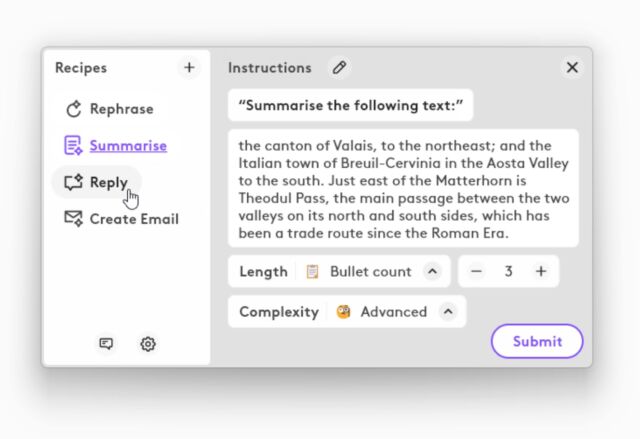
After you make your choices, another window opens with ChatGPT's response. Logitech said the prompt builder requires a ChatGPT account, but I was able to use GPT-3.5 without entering one (the feature can also work with GPT-4).
AdvertisementThe typical Arsian probably doesn't need help creating a ChatGPT prompt, and Logitech's new capability doesn't work with any other chatbots. The prompt builder could be interesting to less technically savvy people interested in some handholding for early ChatGPT experiences. However, I doubt if people with an elementary understanding of generative AI need instant access to ChatGPT.
The point, though, is instant access to ChatGPT capabilities, something that Logitech is arguing is worthwhile for its professional users. Some Logitech customers, though, seem to disagree, especially with the AI Prompt Builder, meaning that Options+ has even more resources in the background.
But Logitech isn’t the only gadget company eager to tie one-touch AI access to a hardware button.
Pinching your earbuds to talk to ChatGPT
Similarly to Logitech, Nothing is trying to give its customers access to ChatGPT quickly. In this case, access occurs by pinching the device. This month, Nothing announced that it "integrated Nothing earbuds and Nothing OS with ChatGPT to offer users instant access to knowledge directly from the devices they use most, earbuds and smartphones." The feature requires the latest Nothing OS and for the users to have a Nothing phone with ChatGPT installed. ChatGPT gestures work with Nothing's Phone (2) and Nothing Ear and Nothing Ear (a), but Nothing plans to expand to additional phones via software updates.
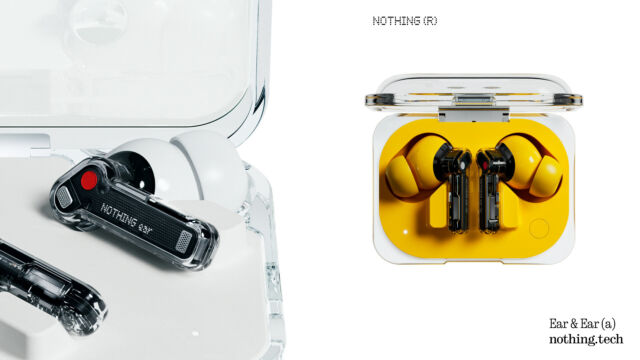
Nothing also said it would embed "system-level entry points" to ChatGPT, like screenshot sharing and "Nothing-styled widgets," to Nothing smartphone OSes.
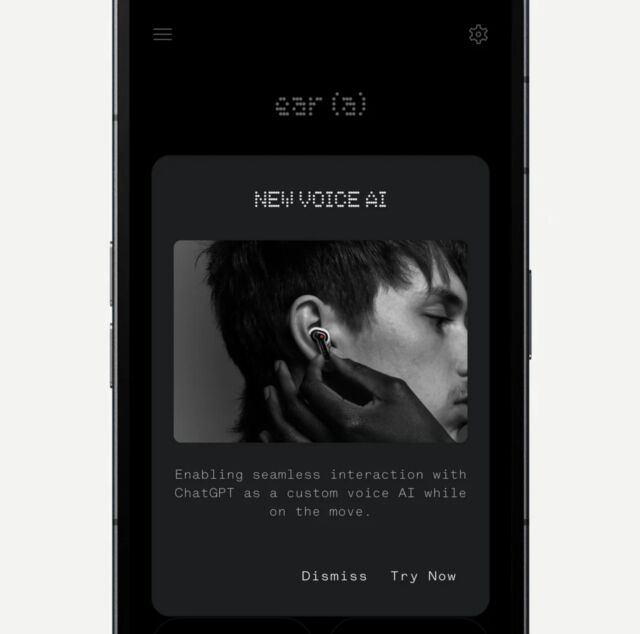
Nothing's ChatGPT integration may be a bit less intrusive than Logitech's since users who don't have ChatGPT on their phones won't be affected. But, again, you may wonder how many people asked for this feature and how reliably it will function.
Microsoft’s Copilot button
Earlier this year, Microsoft added a new key to Windows keyboards for the first time since 1994. Before the news dropped, your mind might’ve raced with the possibilities and potential usefulness of a new addition. However, the button ended up being a Copilot launcher button that doesn’t even work in an innovative way.
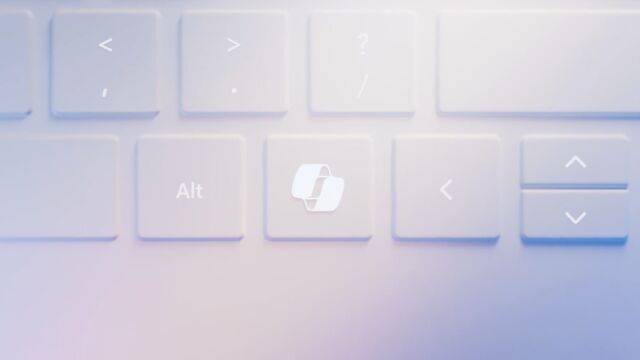
The necessity of a Copilot button for Windows PCs is dubious, particularly considering Copilot is still in beta and the world's still defining the best use cases for generative AI.
Further, shoehorning a Copilot button to the right of the right-Alt button means that users can miss out on useful buttons, like Menu, right-Ctrl (which is used heavily by Korean users), or right-Windows.
Microsoft’s Copilot button will be a requirement for the “AI PC” certification that Microsoft and Intel are plotting. If a computer didn't come with a button dedicated to launching Microsoft’s proprietary chatbot, could it still perform AI workloads? Yes, of course; a Copilot button has nothing to do with a computer's AI-related technical capabilities.
At this stage, we don't really know what the difference between an "AI PC" and a non-AI PC will be. It's possible that the certification, which will also require an integrated neural processing unit (NPU), will denote systems that can run a version of Copilot locally. As of this writing, though, the value of a certified Windows AI PC is unclear, considering the limited ways that Windows uses local NPUs, even compared to rival operating systems.
While this is all sorted, the Copilot button will be ready and present, seeming more like a marketing tactic than a way of ensuring that PCs benefit serious AI users.
AdvertisementStay skeptical
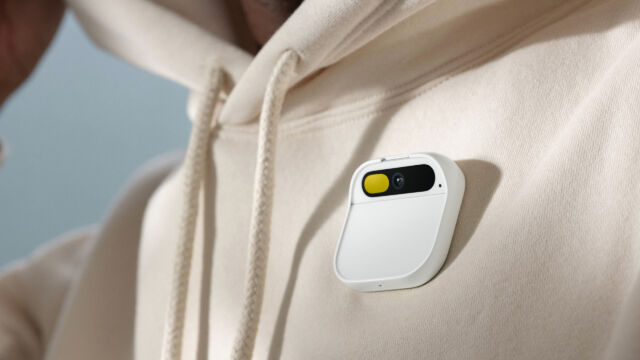
AI will likely continue becoming a bigger part of tech gadgets' marketing points, especially devices targeting those who are eager to own the latest and greatest but have varied understandings of what AI can do and its relevance for them.
It's not just generative AI. Audio peripherals have relied on machine learning to tout noise-canceling abilities for years. There are times when AI can improve a gadget. But over the next months and years, I expect that more devices that aren't necessarily better with AI integration will advertise questionable features related to the tech.
In the gaming world, for example, MSI announced this year a monitor with a built-in NPU and the ability to quickly show League of Legends players when an enemy from outside of their field of view is arriving. MSI told PCWorld that it plans to release an app that lets users train the monitor with any game (it's unclear where the monitor would store training data). But some may think this feature is in the realm of cheating, especially since on-device AI processing and image generation means that standard anti-cheating methods wouldn't detect it.
Another example is AI Shark's vague claims. This year, it announced technology that brands could license in order to make an "AI keyboard," "AI mouse," "AI game controller" or "AI headphones." The products claim to use some unspecified AI tech to learn gaming patterns and adjust accordingly. The AI keyboard and AI game controller can suggest key bindings (presumably through some software) based on how the owner uses the peripherals.
Despite my pessimism about the droves of AI marketing hype, if not AI washing, likely to barrage the next couple of years of tech announcements, I have hope that consumer interest and common sense will yield skepticism that stops some of the worst so-called AI gadgets from getting popular or misleading people.
The Humane AI Pin, for example, has already lost favor, especially compared to rival Rabbit R1... that is if you've bought into the idea of carrying around a standalone AI assistant device at all.



















